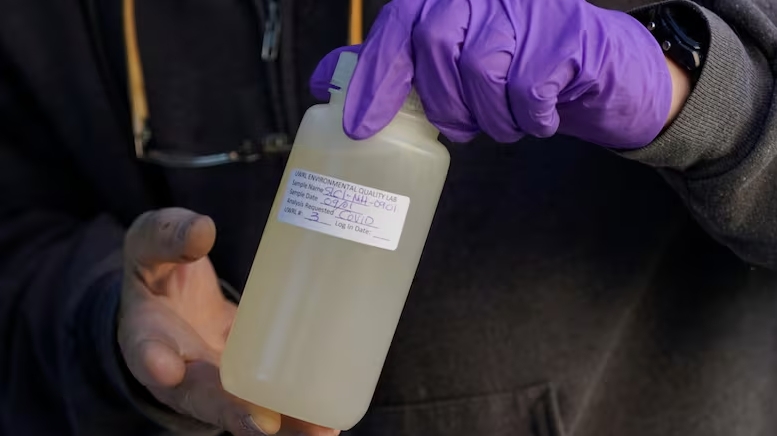B.C.’s Wastewater Surveillance at Risk as Scientists Warn of Funding Cuts
Lucas Tremblay
3/17/20252 min read


Scientists in British Columbia are warning that funding for wastewater surveillance—a crucial tool used to track viruses like COVID-19, influenza, and RSV—could be at risk, leaving Canada vulnerable to future outbreaks.
The B.C. Centre for Disease Control (BCCDC) ramped up wastewater monitoring during the pandemic and has since expanded its efforts to track respiratory and gut-based pathogens, providing an early warning system for viral spread. But with Ontario cutting its COVID-19 wastewater program in mid-2024 and the U.S. government scaling back funding for similar research, experts fear B.C. could soon follow suit.
A Cost-Effective Surveillance Tool
Wastewater surveillance allows scientists to detect viral genetic material in sewage, giving a real-time snapshot of disease activity in communities. Unlike individual testing, which relies on people getting swabbed, wastewater analysis captures data from entire populations, including those who are asymptomatic or don’t seek medical care.
“Before the pandemic, there was no routine use of wastewater data,” said Natalie Prystajecky, an environmental microbiologist at the BCCDC. “That was this huge innovation that occurred because of the pandemic.”
During the Omicron wave in late 2021, B.C.’s testing system was overwhelmed, and wastewater data became one of the most reliable indicators of community virus levels. Since then, the BCCDC has used the method to track other viruses, including influenza and respiratory syncytial virus (RSV), as well as antimicrobial resistance in bacteria.
Funding Cuts in Canada and the U.S.
Despite its success, the future of wastewater surveillance is uncertain. Funding for Canada’s Coronavirus Variants Rapid Response Network (CoVaRR-Net)—a national collaboration of researchers analyzing wastewater—ended this month, and Ontario already discontinued its wastewater program in July 2024.
Prystajecky says B.C.’s program is still operational but acknowledges that without stable funding, its long-term viability remains unclear.
“We are seeing fewer programs like this continuing to be run,” she said. “[We need to] think about the best and most meaningful way of using wastewater surveillance.”
Jesse Shapiro, an associate professor of microbiology and immunology at McGill University, says Canada risks falling behind in global disease tracking.
“If you don’t look, you won’t find it,” Shapiro said, warning that wastewater monitoring is essential for tracking emerging threats like bird flu (H5N1) and new pathogens.
Canada’s Opportunity to Lead
As the U.S. government moves to slash funding for the National Institutes of Health (NIH) and the Centers for Disease Control and Prevention (CDC)—two agencies heavily involved in wastewater surveillance—Shapiro says Canada has a chance to step up and lead in this space.
“It’s actually quite essential for Canada and other countries to step up and not just be entirely reliant on the U.S. for this kind of thing,” he said.
Beyond COVID-19: The Future of Wastewater Surveillance
Scientists say that even as COVID-19 cases decline, wastewater surveillance remains invaluable for detecting new disease outbreaks, monitoring antibiotic resistance, and even tracking illicit drug use trends.
“An advantage of wastewater surveillance is that it can be incredibly effective because the lab methods are not very expensive at all,” Shapiro said.
Prystajecky and her team at the BCCDC hope to expand monitoring efforts to detect pathogens like norovirus, salmonella, and antibiotic-resistant bacteria. But without consistent investment, she warns that Canada risks losing a powerful public health tool just when it’s needed most.
With funding cuts looming, scientists are calling on governments to make long-term commitments to wastewater surveillance, ensuring B.C. and the rest of Canada remain prepared for the next pandemic.
News
Stay updated with the latest BC news stories, subscribe to our newsletter today.
SUBSCRIBE
© 2025 Innovatory Labs Inc.. All rights reserved.
LINKS
